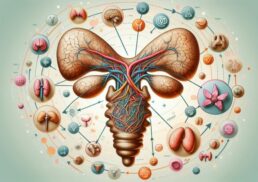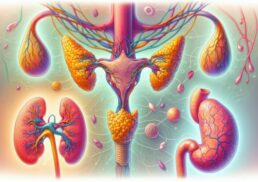
Curious about the low carb diet and its potential to enhance your health?
This beginner’s guide provides a comprehensive overview of this popular dietary approach, detailing its purpose and the possible benefits, including weight loss and improved energy levels.
You will find information on recommended foods, items to avoid, and practical tips for facilitating a smooth transition. Additionally, the guide outlines the results you may expect during your low carb journey.
Prepare to take control of your nutrition.
Table of Contents
Key Takeaways:
- A low carb diet focuses on reducing carbohydrate intake to promote weight loss and improve overall health.
- Foods such as lean proteins, healthy fats, and non-starchy vegetables are recommended on a low carb diet.
- Avoid or limit high carb foods like sugar, grains, and processed foods to successfully follow a low carb diet and see results.
What is a Low Carb Diet?
A low carbohydrate diet is a dietary strategy that substantially decreases carbohydrate consumption while substituting it with increased amounts of protein and healthy fats. The objective of this approach is to facilitate weight management and improve overall health.
This dietary pattern can differ significantly among individuals and encompasses various forms, including the ketogenic diet, Atkins diet, and paleo diet, each with distinct guidelines concerning carbohydrate limits and food selections.
The primary aim is frequently to encourage the body to utilize fat as its primary energy source, which can result in effective weight loss and enhancements in metabolic health.
Explanation of the Diet and its Purpose
The low carbohydrate diet concentrates on significantly reducing carbohydrate intake while prioritizing protein and healthy fats to adequately meet dietary requirements and enhance overall health.
By limiting carbohydrates, individuals can promote a state of ketosis in their bodies, wherein fats are utilized for energy instead of sugars. This metabolic transition can facilitate effective weight loss and may play a crucial role in managing blood sugar levels, making it an attractive option for individuals with diabetes or insulin sensitivity.
Research indicates that high carbohydrate diets may be associated with various health risks, including obesity, cardiovascular diseases, and metabolic disorders. Consequently, adopting a low carbohydrate lifestyle can not only serve as a strategy for weight reduction but also as an opportunity to improve overall well-being by fostering better and more stable metabolic health.
Benefits of a Low Carb Diet
The advantages of a low-carb diet extend beyond mere weight loss, providing numerous health benefits and fostering sustainable eating patterns that can enhance overall well-being.

Many individuals following low-carb diets report increased energy levels and diminished cravings, which can result in substantial reductions in body fat and improved metabolic indicators. For more information, check out this guide on Low Carb Diet for Beginners: What to Eat, Avoid, and Expect.
Furthermore, this dietary approach may assist in managing health risks associated with high carbohydrate consumption, such as insulin resistance and elevated blood sugar levels.
Weight Loss and Other Potential Benefits
Weight loss is one of the most significant advantages associated with a low-carbohydrate diet, as individuals frequently report substantial reductions in body fat and enhanced energy levels within a matter of weeks.
By adopting a low carbohydrate intake, many individuals observe a metabolic shift wherein the body transitions from utilizing glucose as its primary energy source to burning stored fat, a state referred to as ketosis. This metabolic transition can result not only in weight loss but also in improved mental clarity and focus, which are often linked to more stable blood sugar levels and diminished insulin fluctuations.
Furthermore, many individuals report a decrease in hunger and cravings, facilitating the maintenance of caloric deficits. Plus weight management, the health benefits of a low-carbohydrate diet may include:
- Lower triglyceride levels
- Increased HDL cholesterol
- Enhanced overall physical performance
- To learn more about the benefits of a low carb diet, check out this Low Carb Diet for Beginners: What to Eat, Avoid, and Expect.
All of which contribute to a healthier lifestyle.
What to Eat on a Low Carb Diet
When adhering to a low carbohydrate diet, it is crucial to prioritize nutrient-dense foods that meet dietary requirements while maintaining a balanced intake of protein sources, healthy fats, and low-carbohydrate fruits.
This approach is fundamental in developing a satisfying and effective meal plan.
Recommended Foods and Meal Ideas
Recommended foods for a low-carb diet encompass a diverse range of low-carb fruits, leafy greens, healthy fats, and protein sources that can be seamlessly incorporated into meal plans. These options not only provide essential nutrients but also assist in reducing carbohydrate intake.
For example, individuals may start their day with a nutritious breakfast featuring eggs, which are low in carbohydrates and high in protein. Complementing eggs with avocado or a handful of nuts, such as almonds or walnuts, creates a satisfying and balanced meal.
At lunchtime, a vibrant salad composed of spinach, cherry tomatoes, and grilled chicken, drizzled with olive oil, serves as an excellent source of healthy fats.
For snacks, cheese or Greek yogurt are advisable choices, as these high-fat dairy options align well with a low-carb lifestyle, effectively managing hunger throughout the day.
Foods to Avoid on a Low Carb Diet
To effectively adhere to a low carbohydrate diet, it is essential to identify and restrict the consumption of high carbohydrate foods that may impede weight loss and overall health objectives.
High Carb Foods to Limit or Eliminate
High-carbohydrate foods that should be limited or eliminated include refined carbohydrates, starchy vegetables, and sugar-sweetened beverages, as these can significantly affect carbohydrate intake and impede weight loss efforts.
These foods typically possess a high glycemic index, resulting in rapid increases in blood sugar levels, which may trigger cravings and hinder the body’s ability to effectively burn fat. For instance, refined carbohydrates like white bread and pastries are often devoid of essential nutrients and fiber, making it easier for individuals to over consume them.
Starchy vegetables, such as potatoes and corn, although nutritious, are high in carbohydrates and can contribute to elevated insulin levels when consumed in large quantities. Similarly, sugar-sweetened beverages, including sodas and fruit juices, offer empty calories without providing satiety, thereby perpetuating a cycle of increased caloric intake.
By recognizing these categories of foods, individuals can make informed choices that support a low-carbohydrate diet, thereby promoting healthier eating habits and effective weight management.
Tips for Starting a Low Carb Diet
Successfully transitioning to a low-carbohydrate diet necessitates meticulous planning and the implementation of practical strategies to ensure compliance and satisfaction during the adjustment of eating habits.
How to Transition and Stay on Track
To successfully transition to a low-carbohydrate diet and maintain adherence, individuals should prioritize meal preparation and implement healthy substitutions that align with their new dietary patterns.
This strategy not only facilitates more efficient daily food choices but also reduces the likelihood of deviating from the established plan. Initiating the process with a meal prep session can provide a variety of appealing low-carbohydrate options for the week.
Utilizing cooking techniques such as grilling, steaming, or sautéing can enhance the flavors of fresh vegetables and proteins while minimizing the use of heavy sauces that typically contribute unnecessary carbohydrates. For more information on healthy eating, check out this Low Carb Diet for Beginners: What to Eat, Avoid, and Expect.
It is essential to adjust portion sizes to ensure that meals are both satisfying and lower in carbohydrates; utilizing smaller plates may assist in effectively managing these portions. Gradually adopting these strategies fosters a sustainable lifestyle that can lead to enduring health benefits.
Expected Results from a Low Carb Diet
Individuals undertaking a low carbohydrate diet can anticipate a range of outcomes, primarily focused on effective weight loss and enhanced health benefits, which are typically observed within the initial weeks following the implementation of the diet.
Weight Loss and Other Health Outcomes
Weight loss is frequently regarded as the primary outcome associated with a low carbohydrate diet, which is often accompanied by enhancements in various health metrics, including energy levels, blood sugar regulation, and overall metabolic health.
When individuals reduce their carbohydrate consumption, they generally experience a decline in insulin levels, thereby facilitating the body’s ability to utilize stored fat as an energy source. This metabolic transition can result in significant weight loss, particularly during the initial phases of the diet, making it an attractive option for those seeking to lose excess weight.
Research suggests that lower carbohydrate diets may also promote improved cardiovascular health by enhancing cholesterol levels and reducing triglyceride concentrations. As individuals adhere to this dietary regimen, they frequently report increased satiety, which assists in mitigating cravings and contributes to healthier eating behaviours.
Consequently, the relationship between carbohydrate intake and various health metrics represents a crucial area of interest for individuals investigating the potential benefits of this dietary approach.









